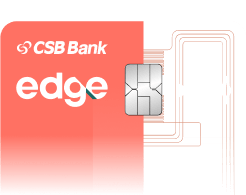How to Track Expenses?
- Home
- Blog
- Personal Finance
- How to Track Expenses?
What is Loan Repayment? & Types of Loan Repayment Methods
July 31, 2024What is Leave Encashment? -Types, Limits, Encashment
August 1, 2024Table of Contents
ToggleWe all secretly desire a beautiful mansion, vacations steeped in luxury, and high-end cars and gadgets, don’t we? But, fulfilling these dreams costs money—a lot of it
And for most of us, money is a limited resource, something we always need to save for a rainy day. It is the medium through which we buy not only what we desire but also what we need—food, clothing, and shelter.
While the thought of spending a few weeks at a faraway cabin in the mountains is nice, the reality is that we need money to get by every day and to even get to our offices where we work to earn.
So, does that mean you never spend on anything else but needs? Not necessarily. You must strike the right balance between your needs and wants and set goals that are attainable. Here’s where a personal budget plays a big role.
What Is Budgeting?
A budget is a plan that you create on how you will spend your money. It could be a monthly, weekly, or annual budget. Wondering what is budgeting? Well, the process of creating a budget is referred to as budgeting.
A spending plan is essential because it will help you determine how much money you have to do the things you like.
If you do not have sufficient funds, then you will learn how to prioritize your spending and direct your money towards the most important things. To know where you are spending the most, you need to track expenses.
How to Track Expenses?
Cryptocurrency, stocks, and mutual funds do sound fancy. But they mean little if we are unable to track expenses.
And yes, although it might seem a little difficult to do this every month, here are some ways to make this easier for you.
Categorize Expenses
Every month, make a list of expenses you are likely to spend on such as grocery, rent, shopping, eating out, and so on. Assign a limit to each and stick to it.
Use an Expense Tracker App
There are many apps that can help you track your expenses, especially if you are left with no idea as to where all your money goes at the end of the month.
A daily expenses app will let you keep track of how much you spend and on what. Since you have already assigned categories, it will become easier to analyze your expenditure at the end of the month.
Have One or Two Bank Accounts
To avoid confusion, stick to maintaining just one or two bank accounts. In addition to your salary account, create another savings account if you have monthly deductions in the form of systematic investment plans (SIPs) and other investments.
Then, when you receive your salary, move the necessary funds to the other account and use it for the rest of your expenses. This makes it easier to track expenses.
What Is a Personal Budget?
Most businesses hire a financial expert to create and stick to a budget that enables them to maximize profits and minimize costs.
In your case, it is up to you to become the expert money budgeter who ensures you spend your money efficiently.
It is essential to create a personal budget. It is a tool to help track the inflow and outflow of money from your bank account. You and your family can use your budget as a guide on how you can spend less and save more.
Importance of Budgeting
Whether you are a fresher who has just landed your first job or an experienced IT professional drawing a six-figure income, a budget is a simple yet effective medium to plan your expenses and savings.
The Cornerstone to Better Financial Health
Budgeting plays a key role in maintaining good financial health and this is true even if you do not have a particular goal like paying off debt or saving a certain amount for retirement.
When you budget, you have an idea about where you are spending and how much money you have in hand.
The Tool to Balance Your Savings And Expenses
When you continue to budget every month in a disciplined manner, you gradually learn how to work with limited funds.
You also understand how much of your income is being spent under different heads.
A budget can help you strike a balance between the income in hand and your expenses. So, every month, when you know that you have to spend a certain amount on rent, groceries, and utilities, you will keep that portion of your income aside.
A budget is also how you can lay down a road map for your long-term goals such as buying a house, an early retirement, your child’s education, and so on.
Different Ways to Track Expenses
Now that you have understood the importance of budgeting, you need to start recording and tracking expenses.
This will help you weed out the unnecessary ones. Here are a few simple tips on how to track expenses.
Record Expenses in a Book
This is a great tip for all you conventional people. In a notebook, reserve a page or a section of it for different categories. Every time you spend, make an entry in the book.
For instance, if you have gone out to eat and spent INR 3,000, then immediately make an entry under the ‘Eating Out’ category. At the end of the month, go through this notebook and compare your expenses under each category against your budget.
If anything exceeds your limit, it implies you need to spend less. Look up the categories where you spent extra and figure out how you can cut back on that the next month.
Pay Through UPI
If you think a book is too tedious to maintain, then consider an easier avenue to track expenses. When you spend little, your expenses are easier to manage and track.
However, when you have different types of expenses, you might not remember to track everything. So, whenever possible, pay through Unified Payments Interface (UPI) and avoid cash payments. This way, even if you forget to track, the transaction will be recorded in your statement and you can easily review it at the end of the month.
Use Google Sheets
A quicker alternative to manual book-keeping is using Google Sheets. It offers easy budget templates and all you need to do is fill in the information every month.
You may create a new sheet for each month in the same file and that will help store all your information in one place. You can also make comparisons between months to understand how far you have come since you started.
Pay Through the Jupiter App
To take a step further and categorize expenses without any hassles, use the Jupiter App. It is a digital banking and personal expense tracker app that immediately lets you categorize any expense you make.
It enables you to set a budget, make quick UPI payments, review all your transactions, and settle dues, all in one place.
Pay in Cash
Although this is a conventional method, it may be effective. At the beginning of the month, put a certain amount of cash in different envelopes and label each with a corresponding heading such as ‘Groceries’, ‘Movies’, and ‘Shopping’.
Now, when you go to the movies, carry the corresponding envelope along and pay using the cash in it. Once it has been used up, stop spending under that category. This way, you need not track separately because your money is tracking itself.
Also, you may end up spending lesser when you pay in cash. The sight of those notes leaving your wallet does pinch a little and make you more responsible.
Use Other Budgeting Apps
In addition to the Jupiter App, you may install other expense management software on your smartphone. Much like the Jupiter App, these apps too can categorize your expenses automatically, suggest opportunities to increase savings, send bill-pay reminders, and much more.
You may download these on Google Play or App Store. However, if you are looking for a quick and convenient platform for your daily needs, the Jupiter App fits the bill.
Track expenses effectively with Jupiter
With Jupiter App you can easily track all your expenses with ease. Jupiter self-categorizes your spends into respective categories and helps you understand what you spent your money on.
Frequently Asked Questions (FAQs)
How do you track expenses on a spreadsheet?
You may use Google Sheets templates or input your income and enter 50% of it against your needs, 30% of it towards your wants, and the remaining 20% for your debts.
How to start making a budget?
To begin with, figure out how much you spend on average. Then categorize your expenses into three main heads: needs, wants, and debt. Next, set up a monthly limit for each.
You may choose to create sub-categories under each to help you track better. Plan well and ensure you stick to your limits.
How do you ensure that you stick to the budget?
It is important to track expenses consistently. For this, it is not necessary that you invest in the best expense tracker app. Just pick one that is easy to use and helps you stay disciplined regularly.
Author
-
 Priynka Rao: Author
Priynka Rao: AuthorPriyanka Rao is a content strategist for Jupiter.Money, and specializes in writing on topics related to finance, banking, budgeting, salary & wages, and other financial matters. She has a passion for creating engaging content that resonates with audiences across various digital platforms. In her free time, Priyanka enjoys traveling and reading, which allows her to gain new perspectives and inspiration for her work. With a keen eye for detail and a creative mindset, Priyanka is committed to creating content that connects well with her readers, enhancing their digital experiences.
View all posts






